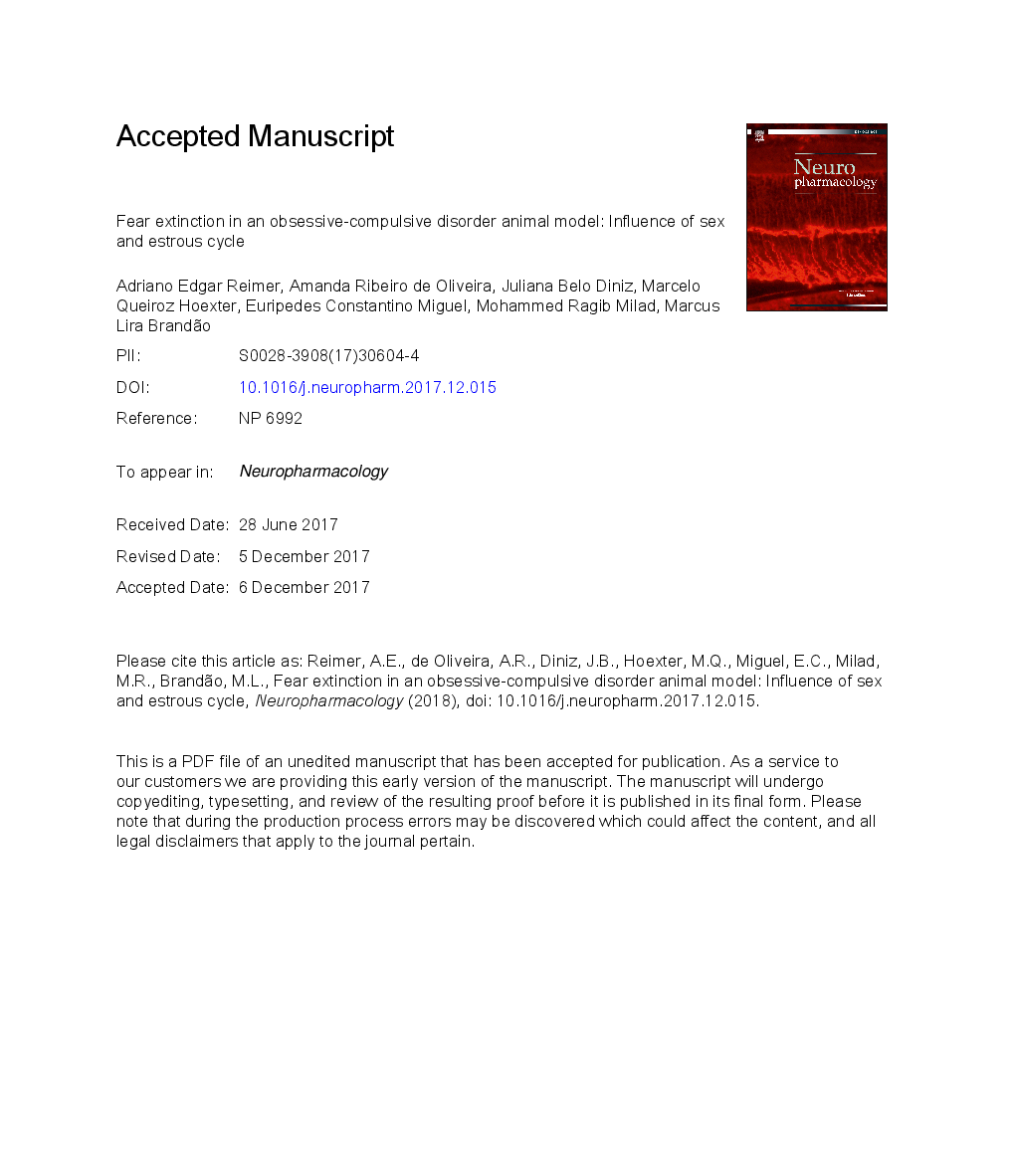ترجمه فارسی عنوان مقاله
انقراض ترس در مدل حیوانی اختلال وسواسی-اجباری: تاثیر سکس و چرخه استروی
عنوان انگلیسی
Fear extinction in an obsessive-compulsive disorder animal model: Influence of sex and estrous cycle
| کد مقاله | سال انتشار | تعداد صفحات مقاله انگلیسی |
|---|---|---|
| 131064 | 2018 | 37 صفحه PDF |
منبع

Publisher : Elsevier - Science Direct (الزویر - ساینس دایرکت)
Journal : Neuropharmacology, Volume 131, 15 March 2018, Pages 104-115

